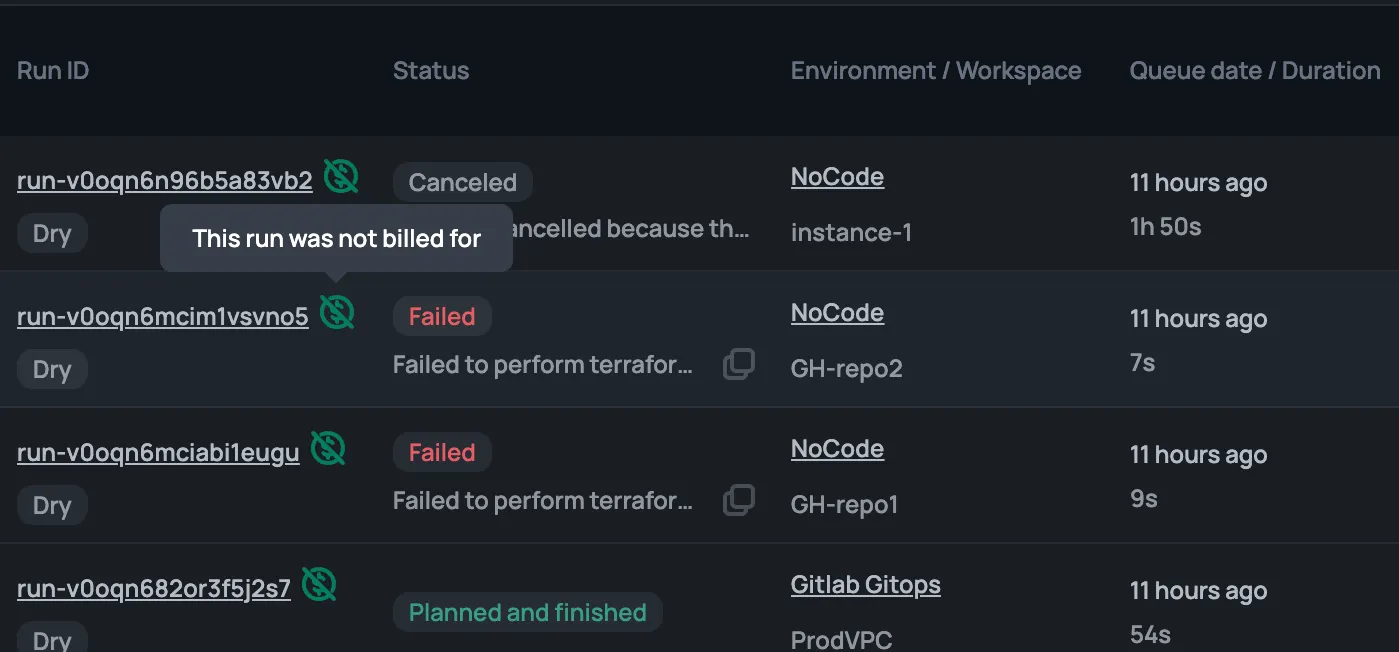Unlimited & Free Concurrency.


Infrastructure as Code (IaC) enables the management and provisioning of IT infrastructure through code. Terraform and its open-source fork, OpenTofu, are common tools for IaC. Increased IaC adoption necessitates solutions for automation, collaboration, and governance. Scalr is a platform designed for Terraform and OpenTofu operations.
This document outlines Scalr's CI/CD features, including its GitOps workflows, custom hooks, run triggers, and execution environment customization.
Scalr automates Terraform and OpenTofu operations. It integrates with Version Control Systems (VCS) like Git, supporting GitOps workflows. Scalr supports two primary models:
plan and report the output. After review and merge into the main branch, Scalr proceeds with the apply operation. This model ensures that only approved code is applied to the infrastructure.Scalr's CI/CD automates standard Terraform/OpenTofu commands (init, plan, apply), reducing manual intervention and potential errors.
Standard IaC workflows may require steps beyond automated plans and applies. Scalr's Custom Hooks allow the integration of custom scripts and tools at various stages of a run lifecycle. These hooks enable customization of the CI/CD process.
Available hook points include:
plan operation. Used for static code analysis (e.g., tfsec, tflint), compliance checks, or generating dynamic input variables.plan has been generated. This can be used for custom plan analysis, cost estimation checks, or sending notifications about planned changes.apply operation. Used for final validation, integration with external approval systems, or security checks.Scripts for custom hooks can be sourced from a VCS repository or downloaded from an external location. Scalr also supports a "hooks registry" for centralized management of hooks. This enables platform teams to define and maintain standard hooks for use by development teams, which can aid in consistency and adherence to best practices.
Infrastructure components often have dependencies requiring coordinated provisioning and updates. Scalr's Run Triggers manage these dependencies.
Run Triggers offer the following capabilities:
Scalr's cross-workspace run triggering is comparable to features in other platforms like Terraform Cloud (TFC) or Spacelift for managing infrastructure dependencies.
Execution environment requirements can vary. Scalr supports both managed execution and self-hosted agents (runners).
Self-hosted agents provide the following benefits:
This customization allows Scalr to meet diverse organizational requirements.
Scalr is a platform for automating and governing Terraform and OpenTofu workflows. Its CI/CD capabilities, including GitOps support, custom hooks, run triggers, and customizable execution environments, assist teams in managing infrastructure. Scalr provides tools for various levels of IaC automation and deployment complexity.
Further information is available in the Scalr documentation. A demo can be requested to view these features.




